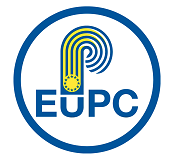2019
The Ministry of the Environment plans regulations that are contrary to environmental protection - a fee for thick plastic bags
In the legislative process of amending the act on maintaining order and cleanliness in municipalities and some other acts, there was a change published on 6 May regarding plastic bags with a thickness of over 49 microns. The ministry intends to introduce a recycling fee for thick plastic bags amounting to 20 grosze per item.
The EU directive on reducing the use of plastic bags is based on the BIO Intelligence Service report commissioned by the European Environment Committee. The comprehensive report, containing 133 pages, presents a full analysis of the consumption of shopping bags in EU member states together with information on what types of bags are abandoned by consumers without control and end up in the environment. According to the report, the best environmental option is the repeated use of plastic bags. For this reason, the European Commission has recognized that the use of the most popular so-called lightweight plastic bags that are considered disposable (not because of their properties, but consumer habits) should be limited. Both the BIOIS recommendations and the EU directive introduce restrictions for bags up to 49 microns. Bags above this thickness are not subject to the directive because they do not pose an environmental hazard. "Countries where reusable plastic bags are the most prevalent do not report significant littering problems" (p. 34) (...). "Thick plastic bags are the best environmental option" (p. 34) (...) because of their properties, which can be seen in practice.
Plastic bags are much more durable and easier to keep clean than cotton or paper bags. In addition, the significantly higher environmental footprint in the sourcing, production and transport phases does not place bags from alternative materials higher. "The environmental impact is strong for cotton bags because they require significant amounts of water and chemicals for production" (p. 30 report) (...) "Paper bags have a much stronger environmental impact than disposable plastic bags in most environmental impact categories in addition to littering "(P. 31 there)
In the light of the analyzes contained in the BIOIS report, reducing the use of reusable plastic bags and favoring other materials will have a negative impact on the environment. It seems that the ministry omitted the report and recommend the EC when designing the recycling fee for thicker bags. It seems that budget revenues are more important than the environment. Instead of being glad that the effect of transposition of the directive restricting the use of light bags for Poland, the administration is extremely beneficial rather worries about the fact that the budget has a much lower budget than planned.
However, the project again strikes at Polish entrepreneurs, family businesses of SMEs. Meanwhile, in the explanatory memorandum to the regulation, we find that it will not affect entrepreneurs. In connection with the introduction of the recycling fee for lightweight plastic bags, entrepreneurs were forced to replace their machines and equipment immediately to switch production to thicker, reusable bags. The necessary machines, purchased by entrepreneurs, are currently in the lending phase and have only just had the chance to cushion themselves in future years. Meanwhile, the Ministry is again designing a change to recently introduced regulations, where provisions are introduced forcing entrepreneurs to liquidate companies, because the loss of the market for new investments will force companies to bankrupt. In turn, the regulation favors large paper producers and importers of materials such as cotton. In Poland, about 120 companies deal with the production of plastic bags and the production of films for this sector. They are mostly family businesses, built from scratch from the beginning of the transformation. The implementation of the Regulation will lead to the liquidation of some of these companies, which of course will result in the loss of many jobs and the inability to pay back loans taken out for investments, dictated by the need to adapt the equipment to new EU regulations.


